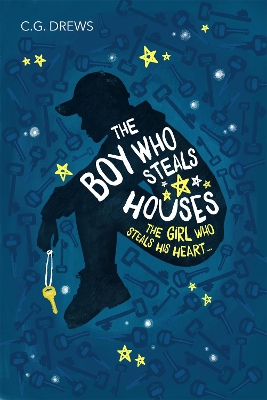Reviewed by Kelly on
The Lou Boys
Fifteen year old Sammy Lou has always been Avery's protector. Against their violent father, schoolyard bullies and those who are ignorant of Avery's needs. Avery is Autistic and requires stability in his life, which isn't something his Aunt Karen is capable of since their father abandoned the boys at his sister's house, their mother also estranged and leaving her two children in the care of their abusive father. If only people took the time to learn about Avery's needs and about the seventeen year old young man who loves to fix cars, who thinks boys are also pretty and who feels fiercely, then Sammy wouldn't need to use his fists.
Now on the run from Aunt Karen and the authorities, Sam wants nothing more than to provide Avery with the stable home he deserves, so while Avery begins work as an apprentice mechanic, often sleeping in the workshop office, Sam breaks into empty and abandoned homes while residents are on holidays, taking items of value to sell in the hopes of one day being able to afford a home of their own. Sam's only possessions of value are the hundreds of keys jangling around in his backpack, souvenirs to remind the fifteen year old what's important, family and home. Desperately clinging onto the dream of one day being worthy of both.
My heart absolutely ached for Sam and Avery. Born into a cycle of abandonment, the boys are victims of family violence, a cycle of which Sam is now trapped. He himself has turned to violence to protect Avery from bullying and ignorance due to being neglected and unheard by the adults who have failed two boys now homeless and stealing to survive. These boys aren't petty criminals, they're simply products of a traumatic environment, of neglect and impoverishment.
The De Lainey Bunch
We're first introduced to the De Lainey family by accident. Sam breaks into their home while they're on holidays but only to discover they've arrived home early. The De Lainey family with their loud booming voices, unabashed laughter and house built from unconditional love. Sam is swept up into their lives and given a plate at their table, assumed to be a friend of one of the De Lainey kids. Except he isn't.
Be prepared to fall in love.
As Sam promises himself just one more day with the De Lainey family before he leaves for his next abandoned home, he finds himself smitten with the brilliantly opinionated and girl power advocate Moxie De Lainey, a whirlwind of bright colours and sunshine. Beneath her tough, take no prisoners exterior lies a girl who just wants to be appreciated and yearns for her mother who was taken by cancer. While her father has enlisted the help of Moxie's brothers on his construction sites during the holidays, the family is barely keeping afloat with a single parent income and medical bills still owing, a painful reminder of their mother taken too soon.
Is This A Kissing Book?
The transition from friendship to tentative romance was lovely. This isn't a romance of dependency or that love will conquer all, Sam and Moxie care for one another and that genuine support and belief allows them to both to face their own issues and grow as individuals. There are no magical wands but real consequences for their actions, such as Sam's criminal history. Too often young adult books tend to gloss over such issues in favour of a happy ending, The Boy Who Steals Houses only proves that a great author can provide readers with both.
It explores societal issues such as poverty, homelessness, bullying, ableism, neglect, abuse and family violence with a careful hand, genuinely and without romanticism. The Boy Who Steals Houses also feels like a very personal and intimate story, especially with an anxiety and autism own voices inclusion. The humour and heartwarming moments were reminiscent of old school John Green, before he tore out your heart or decided to write fifty versions of the same book. The banter and laugh out loud moments are a brilliant inclusion and help unburden the heaviness of the storyline. The De Lainey family reminded me of My Life Next Door by Huntley Fitzpatrick and I loved the ongoing joke of Jack always being the one overheard swearing, fighting, complaining and being mildly punished by their father while the others laughed at his misfortune. I'm a sucker for a narrative with a reoccurring theme.
Vibrant and genuine characters, a warmth and humour that's become a signature of C. G. Drews, it was utterly beautiful. Now excuse me while I pick up my shattered heart she attempted to tape back together while manically laughing. Again.
Reading updates
- Started reading
- 20 April, 2019: Finished reading
- 20 April, 2019: Reviewed
